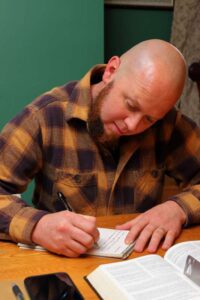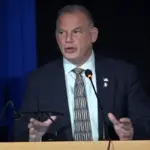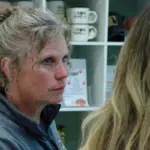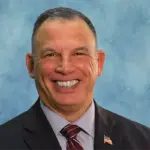by Lois Szymanski, photography by Nikola Tzenov
How to Be Intentional in Showing Your Love
Last year, Americans spent $23.9 billion on Valentine’s Day gifts for partners, friends, pets and more, according to the National Retail Federation. It seems we love to celebrate love. But according to the theory of “Love Languages,” not everyone feels the love with a box of chocolates or bouquet of flowers. Local experts say that knowing a partner’s love language can help take a relationship to the next level. Do you know your significant other’s love language? If not, maybe finding out what it is would be an amazing Valentine’s Day gift.
Since the release of Gary Chapman’s 1992 book The Five Love Languages: How to Express Heartfelt Commitment to Your Mate, interest in love languages has exploded. Based on his experience from 30 years of marriage counseling, Chapman has identified five love languages that outline the general ways romantic partners express and experience love. They are: Words of Affirmation, Quality Time, Receiving Gifts, Acts of Service, and Physical Touch. There is a love language test couples can take to determine their own love languages.
According to Chapman, each person has one primary and one secondary love language. Knowing yours and your partner’s love language makes it easier to meet emotional needs and communicate more effectively.
Karen Glock, a licensed counselor at Cedar Ridge Counseling Center in Eldersburg, uses the love languages test in her practice.
“I usually begin with the couples taking the test by the second or third session,” Glock said, noting that she has attended Gary Chapman’s live seminar, read his book and applied Love Languages to her own marriage.
“I believe it is accurate and a great starting point for couples to begin loving each other in a way that truly speaks to the heart of their spouse,” she said. “Many times, couples will state that they do not feel loved by their spouse, yet the spouse is trying to show or speak love to them. They are just speaking the wrong language. Once each can recognize and understand their love language, as well as their spouse’s, the way in which they express and receive love will be much more effective.”
Taneytown residents Jesse and Randi Mills said they use this insight in their relationship. Jesse’s love language is Acts of Service. Randi said she always takes that into consideration.

“For instance, coming home from work and seeing toys spread all over the floor really stresses him out,” she said. “So I make a conscientious effort to pick up the toys before he comes home. Would I rather just relax for a few minutes after the kids have gone to bed? Absolutely. But sacrificing 10 minutes of my time allows Jesse to relax after a long day of work and makes him feel honored.”
Service gifts like this can be more meaningful than a physical gift. Jesse said that because Randi’s love languages are words of affirmation and quality time, he follows up with thank you notes to her.
“I enjoy writing little love notes for her to find when she wakes up because I know it makes her feel truly valued and seen,” he said, adding that, with three kids, it takes intention to do these things, but that it’s worth it.

his wife, Randi, to find.
According to Glock, most people do not share the same love language as their partner.
“Therefore, you need to make a conscious effort each day to talk their love language and not your own,” she said. “It may be awkward at first, but with consistency and sincerity, you will see your love grow.”
Hampstead residents Josh and Katie Redding said they learned about love languages at a Weekend to Remember marriage conference in 2008. After leaving the conference, they read the book together and each took the test. Now married 22 years, they say they use that information daily.
With the test showing she is a tie between quality time and receiving gifts, Katie’s love languages do not match Josh’s, whose love languages are acts of service and words of affirmation.
“They kind of go hand in hand,” Katie said of her own results. “Time is a gift to me, and gifts don’t necessarily mean physical gifts. It’s any way that someone shows they are thinking of me.”
Knowing this made a difference for Josh.

“Prior to understanding this I would run around doing things for her,” he said, “serving through acts of service, since that is a primary love language for me. At the end of the day I would think, Wow, I really showed her that I loved her today! Meanwhile, she would be feeling completely unloved, because rather than spending time with her I had run around all day doing things.”
Former Westminster resident Brittany Edie has her own counseling center, Graceful Balance Christian Counseling, in Owings Mills. With a master’s degree in counseling and post-graduate certification in marriage and family therapy, she sees clients both virtually and at an office in Hampstead.
She said that after her clients take the Love Language Test, “Each person is given time to share their love languages, what they learned, as well as examples of what makes them feel loved. Spouses are encouraged to write those examples down so that they can begin speaking their spouse’s love language between sessions.”
Edie said that people frequently come to counseling because they are not feeling loved.

“The love languages help bridge the gap between why a person may be feeling unloved and their spouse saying they love them. When love languages aren’t met, it can lead to hurt, misunderstanding and miscommunication. I always give the example of my husband and [me]. My love language is quality time, while his is acts of service. Before we knew about the love languages, he was trying to love me in his own language by doing dishes and laundry. While I appreciate those things … what made my love tank feel full was spending time together, and I had to learn what made him feel loved were those acts of service.”
Randi Mills said that knowing each other’s love languages made a difference in her relationship.
“Jesse has a very unique work schedule in which he has off for multiple days in a row. Even though I am a stay-at-home mom, and we home school, it felt like those days slipped away without us really spending much time together,” she said. “Jesse listened intently when I shared my concerns and he immediately decided that we need to be more intentional about planning family days together. We now have these days blocked out on our calendar where nothing else gets planned. It meant the world to me that he heard me and recognized that my quality-time bucket was running empty.”

Glock says hectic schedules often play a part in the issues couples face.
“Nowadays, our lives are so busy. I often see couples that genuinely care for one another, but they have lost the feeling of being special or truly loved. We tend to prioritize other responsibilities or activities above our marital relationships, and they suffer. We forget that marriage takes work. However, with intentionality and effort, as well as knowing how to love our spouse, [couples] can get that loving feeling back into their relationship and have a healthy, happy marriage.”
Edie agreed.
“I think it is important to note that your spouse can’t be your source of life or solely responsible for your happiness. However, with love languages as a tool, it can make a significant difference in marital satisfaction and happiness,” she said. “Love is a choice, not a feeling. By learning the love languages, you are choosing to love your spouse in a way that communicates love to them.”














